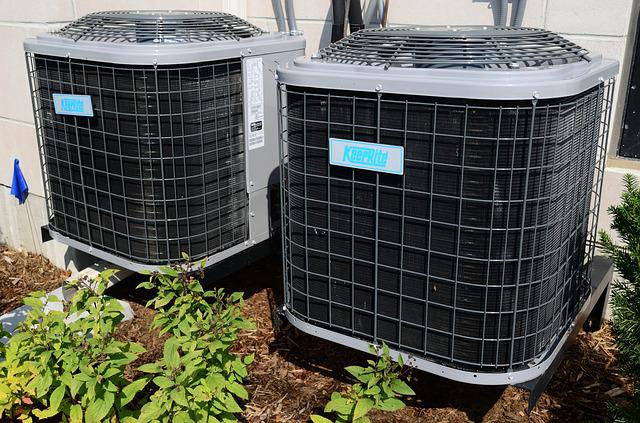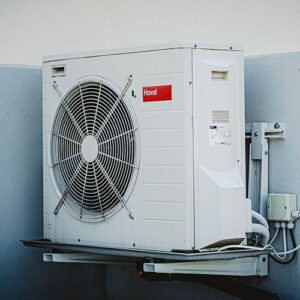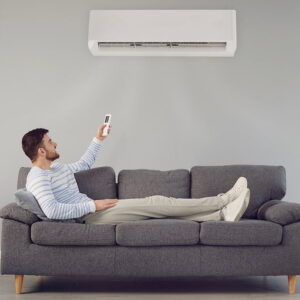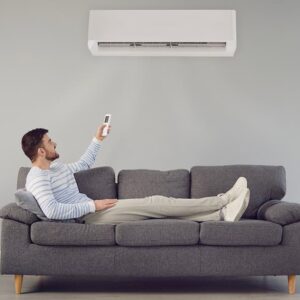Have you ever questioned whether your air conditioner is promoting or preventing pollen, dust mite, or mold allergies? Your health is greatly impacted by the indoor air quality in your house, especially if you have allergies.This article exploresquick answer to do air conditioners filter pollen.
Table of Contents
How Does The Air Conditioner Work?
The air conditioner draws in air through vents located in the base. There is a cooling tube inside the device, which contains coolant or refrigerant. The air cools and removes moisture before flowing to the heating element. Fans at the top of the air conditioner blow air back into the room.
Alternating current is used to cool a room, not to heat it. An air conditioner adjusts its air flow by using a thermostat until it reaches a maximum setting. After that, it stops until the temperature rises again.
As coolant flows through pipes, it takes heat out of the air and evaporates. Finally, it takes the heat out of the room and releases it into the air outside. An electric fan helps blow air over a metal plate
Will The Air Conditioner Filter Pollen?
Yes, air conditioning helps filter pollen. When you open the window to let the air circulate, the air entering your house has no filtering mechanism, which can ensure that the air is completely free of allergens or bacteria. Because of this, most allergists often advise homeowners to install air conditioners to improve air quality.
Most air conditioners are equipped with HEPA certified filters to effectively filter the air entering your room through the vents. This filter traps pollen and other allergens in its pleated cloth or paper before transferring them to the pipe, preventing them from entering your room.
How Does Air Conditioning Filter Pollen
Air conditioning units are equipped with filters that help capture pollutants and thus produce clean air emissions. Not all air conditioners are effective at removing allergens. The difference is the air filter. Some variants capture large debris that can damage the HVAC.
The following types of air conditioning filters exist:
- Electrostatic filter
- Plastic mesh filters can trap larger dust particles
- Carbon filters are effective in removing odor-causing gases
- Viscous filters are made of fiberglass and cotton with a viscous coating
Air conditioners equipped with high-efficiency particulate capture (HEPA) filters can capture up to 99.9 percent of airborne particulates. An alternative is an electrostatic filter. It is strongly recommended for use in residential air conditioning units with an efficiency of 90%. However, the effectiveness of air conditioning equipment determines how much pollen it removes.
Can Pollen Come Through The Window Air Conditioner?
Yes, pollen can come thru the window air conditioner. When your air conditioner, particularly the filter is no longer correct maintained, small particles current in the air like, mold, dirt mites, pollutants, and pollen get trapped in them and then get airborne into your room when you swap on your AC unit. Therefore, you ought to make certain your unit constantly stays smooth and additionally see to it that your filter is typically changed to enhance the ordinary air fine of your room.
Where Does Your Pollen Come From?
Pollen is composed of fine powder spread by wind, insects, birds and other animals. Plants are the main source of pollen. The movement of pollen between plants is necessary for fertilization. However, for allergic patients, exposure to pollen can cause pain and discomfort.
Particles enter the room through doors and windows. Your shoes, clothes and pets will also bring pollen. Once you enter your living space, these particles will fall on the surface. Airflow helps to keep pollen suspended in the air.
Most of the pollen in June and July comes from trees and grasslands. On the other hand, pollen comes from ragweed in mid August, with a peak in September. In some areas, this season can last until November.
Ragweed allergy is also known as pollinosis. This weed grows anywhere in cities and rural areas. Salt in winter promotes its growth along the edge of the road.
Air conditioning can significantly reduce indoor air borne pollen. Compared with families without air conditioning, the clinical symptoms of allergic individuals living in families with air conditioning are reduced. Central air conditioning can also reduce the number of mold and bacteria.
Does Pollen Injury The Air Conditioning System?
According to the EPA, one of the largest reasons of achievable fitness issues in the US is terrible indoor air quality. According to the statistics provided, dander, dirt, fungi, microorganisms, pollen, and hair can motive fitness issues when they accumulate in the air ducts of HVAC equipment.
Not solely that, they maintain, however contaminants can additionally purpose inner factors of HVAC structures to fail, main to ongoing screw ups and repairs.
Components Of An Air Conditioning System
Air conditioners might also appear like difficult portions of equipment, however they are not. As for the one in your house, if it works simply fine, you by no means supply a whole lot concept to it. An air conditioner includes of 4 components:
Evaporator Coil:
It helps soak up warmness and moisture, ensuing in the dry, bloodless air that you revel in when it is hot.
Compressor:
It compresses the refrigerant vapor in a method that will increase stress and temperature.
Condenser Coil:
After the compressor has improved the refrigerant’s heat, it is the condenser coil’s work to flip it into a warm liquid.
Expansion Valve:
It converts the coolant into vapor earlier than it flows again to the evaporator to repeat the cycle.
How To Forestall Pollen From Getting Into Air Conditioning
Many households commonly ride pollen invasion in the spring. Although most of these humans have a working HVAC machine (useful gear for enhancing air quality), unfortunately, most of them have little thought how to preserve pollen and different allergens out. In this section, I will talk about how to use ac units to preserve pollen out.
Equip Your Air Conditioning Unit With A Matching Hepa Filter
We have four specific sorts of air filters, however alas no longer all of these filters are capable to stop microspores and allergens from coming into the circulating air in your room. Therefore, it is endorsed that you test the kind of filter in your air conditioning unit to decide whether or not it is the filter required by using your unit, or that you have the HVAC technician affirm the device for you for the duration of weekly or month-to-month maintenance.
To suppress boom and stop pollen and different allergens from infusing your room, use a hePA filter or a top-of-the line filter that can enhance the air nice in your home. However, these sorts of filters have the drawback that they are generally thicker than traditional filters and, as a result, can expand the workload of the AC unit. Therefore, to keep away from overworking your HVAC systems, you have to substitute them greater frequently.
Trust Your Air Conditioner
Many instances I see buddies and neighbors who have a working HVAC machine open Windows for ventilation. Whenever I ask them why they are taking action, their reply is continually the same: “Nothing beats clean air and saving on bills.” While the 2d purpose can also be compelling, it is now not sufficient to make your residence susceptible to pollen and allergens.
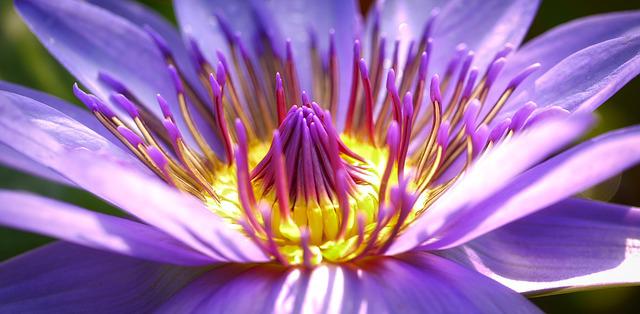
These allergens are so small that no depend how fantastic they are, they are in a position to break out via the grid of Windows. So throughout top allergic reaction times, you must usually maintain your Windows closed and let your air conditioner grant all the indoor cooling you want. If you are afflicted by way of the value of electricity consumption, you can use a window unit due to the fact it can be run at the lowest cost.
You may see extra pollen round your domestic in spring, due to the fact this is commonly when plant life are in bloom. To make certain you have smooth air round your house, make positive there are no vegetation round the condenser. Regularly trim or trim weeds or vegetation developing round the condenser to end growth, or herbicides can be used. You can additionally use gravel or bricks to create a boundary for your unit, simply make certain your unit’s airflow is now not blocked.
Symptoms Of Pollen Air Pollution
Most people spend 90% of their time indoors.
The concentration of indoor pollutants is sometimes 2-5 times higher than that of outdoor environment.
Children and the elderly are most likely to be affected because they spend most of their time indoors.
In addition, the use of household cleaners, personal care products and furniture has increased indoor pollution.
Pollen air pollution symptoms.
Most people spend 90% of their time indoors.
Sometimes, the indoor pollution concentration may be 2-5 times higher than the outdoor concentration.
Since they spend most of their time indoors, children and the elderly are more likely to be affected.
In addition, the use of personal care products, furniture and household cleaners can also cause indoor pollution.
An Allergic Reaction To Pollen Includes The Following Symptoms
- Sneezing
- Stuffy nose
- Coughing
- Dizziness
- moist eyes
- Sore throat
- Brief breath
- Fatigue
You may reduce pollen exposure by closing your windows and doors. However, due to the fact that indoor air pollution cannot always be avoided, this is not always practicable. In order to filter pollen, you need an air conditioner.
Summary
Pollen is filtered by air conditioners. An air conditioner draws air into its intake vents using suction power. After that, filters that capture dust, pollen, and other particles are placed in the air. In doing so, air conditioners enhance indoor air quality and dramatically lower difficulties brought on by allergies.

